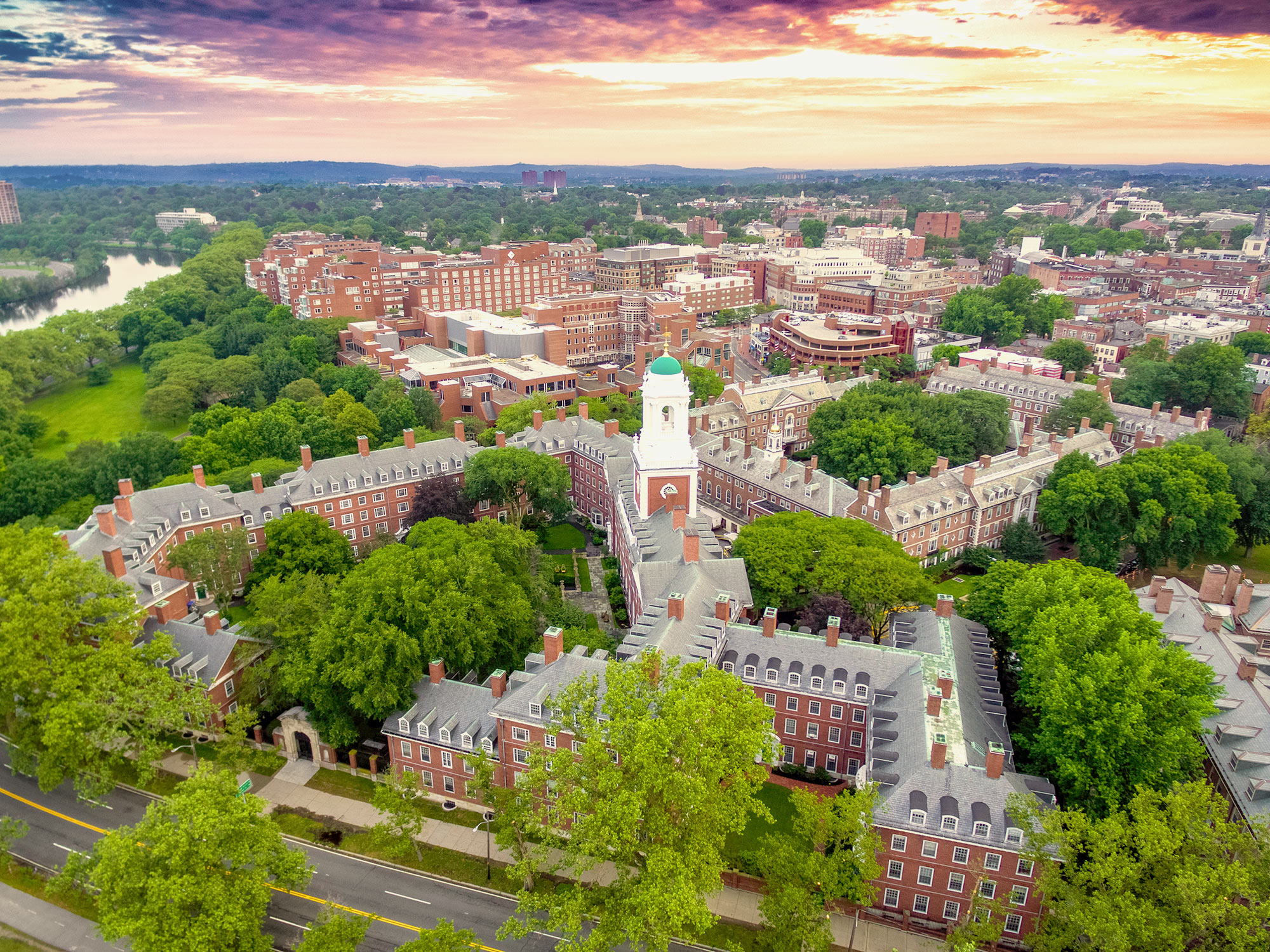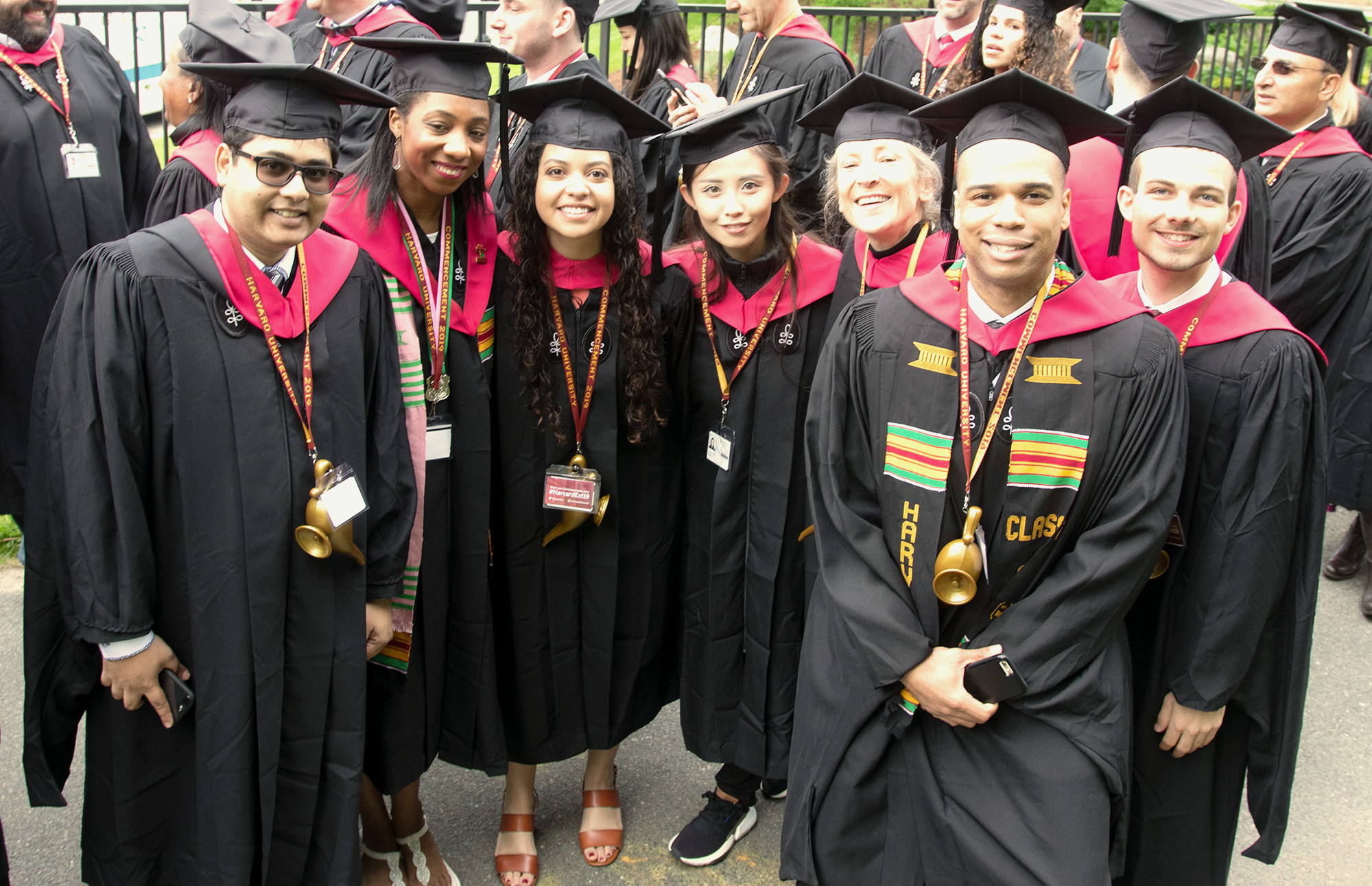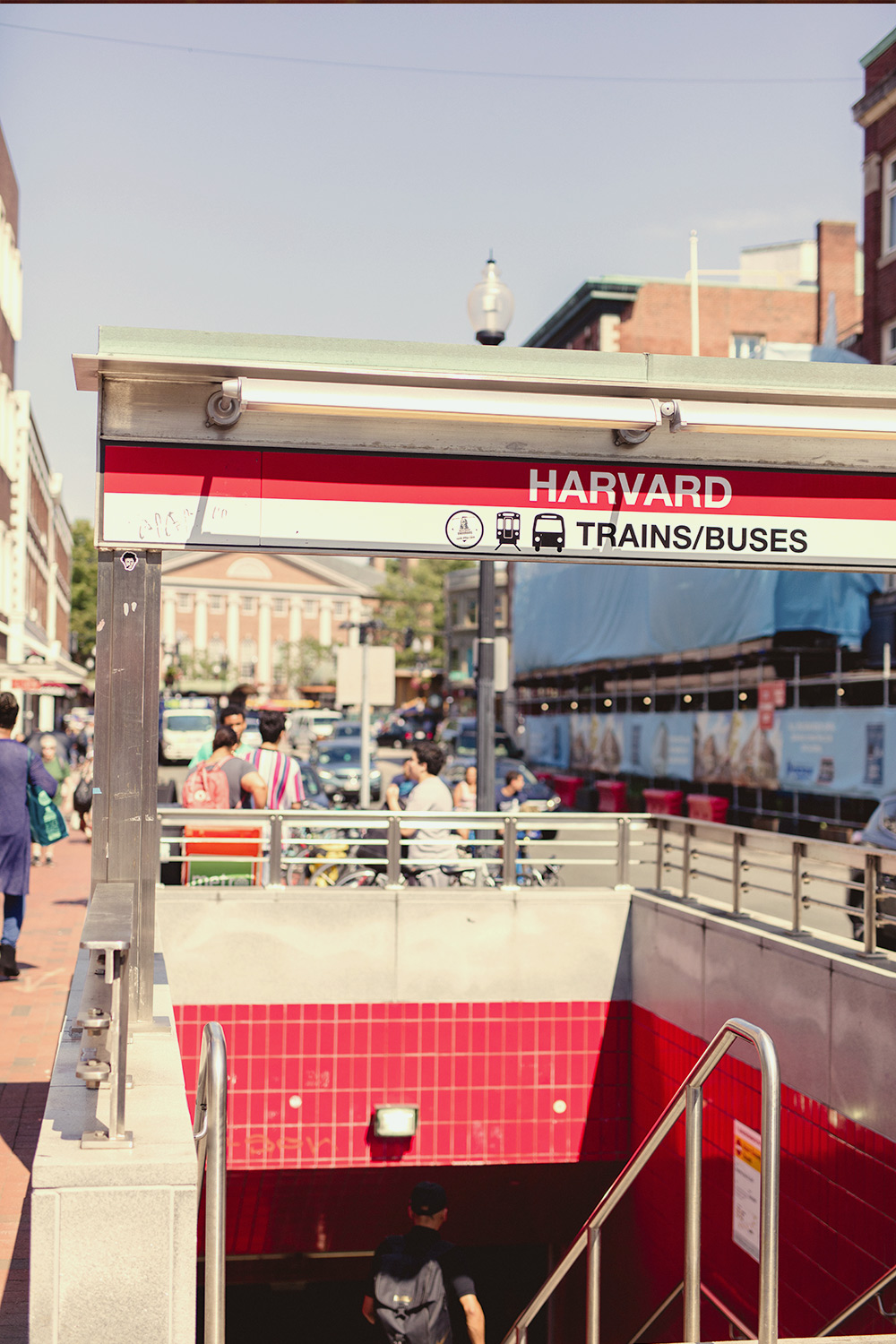


We Are Harvard
Since our founding in 1910, we’ve been expanding Harvard University’s reach beyond the traditional student and conventional classroom. What began as a series of courses for the local community has evolved into an accredited Harvard school serving adult learners around the globe, from over 110 countries.
As one of 12 degree-granting schools at Harvard University, we teach the largest and most eclectic student body at the University. Our students come to us from various time zones and cultural and professional backgrounds.
Regardless of their diversity, our students are united by their drive to push beyond their limits as they pursue intellectual and personal growth. We offer them academic experiences that are challenging, relevant, and designed to fit their lives — including over 750 courses, nearly 50 certificates, and 25 degree programs with online and on-campus options.
Each May, our degree candidates join graduates from across Harvard to participate in the University’s Commencement. With their Harvard degrees in hand, they become members of the Harvard Alumni Association.
Our History: Inclusive & Accessible from the Beginning
The origin of Harvard Extension School can be traced back to 1835—when John Lowell Jr. founded the Lowell Institute.
In his will, Lowell Jr. funded an organization that provided Boston with free public lectures on a variety of subjects. The institute quickly gained an influential presence. Oliver Wendell Holmes, a lecturer at the institute, remarked, “No nobler or more helpful institution exists in America than Boston’s Lowell Institute.”
In 1906–07, A. Lawrence Lowell, a trustee of the Lowell Institute and Harvard professor of government, revealed a plan to offer public courses in collaboration with Harvard University. And when Lowell became president of Harvard, he made that vision a reality.
In 1910, Lowell founded the Commission on Extension Courses—hailed by the Boston Evening Transcript as “a new milestone” in education. He saw the commission as an experiment in “popular education.” The goal was to serve those in the community who had the ability and desire to attend college, but had other obligations that kept them from traditional schools.
We have held steadfast to Lowell’s vision for over a century. Today, nearly 13,000 students join us in our classrooms, and more than 1,300 degrees and 1,300 certificates are awarded each year.
As part of the Harvard Division of Continuing Education, we extend our academic resources further through courses and programs offered by Harvard Summer School and Professional & Executive Development.
Timeline of Harvard Extension School
1835
John Lowell Jr. revises his will, leaving half of his estate to endow public lectures. This became the endowment for the Lowell Institute of Boston.
1839
Lowell Institute inaugurated.
1900
A. Lawrence Lowell becomes trustee of Lowell Institute.
1910
Harvard Overseers approve a Department of University Extension on February 23.
1913
In June, two graduates receive the first Harvard University Extension degrees.
1949
- Reginald H. Phelps directs and expands Harvard University Extension, stepping down in 1975.
- University Extension courses are offered on radio.
1956
First Harvard University Extension course is offered on television.
1960
Harvard University Extension starts Polaris University for US Navy submarine crews.
1968
Harvard Extension Alumni Association (HEAA) founded.
1975
Michael Shinagel becomes dean of Harvard University Extension School.
1976
Tuition Assistance Program begins for Harvard staff.
1977
Certificate of Advanced Study offered.
1979
- Harvard University Extension introduces an ALM (master of liberal arts) degree.
- Health Careers Program (premedical) starts.
1980
First annual Lowell Lecture is given by McGeorge Bundy.
1983
- Harvard University Extension establishes a coat of arms.
- Grossman Library for University Extension moves to Sever Hall.
1985
- University Extension becomes Harvard Extension School.
- The Harvard Division of Continuing Education (including Harvard Extension School, Harvard Summer School, and Harvard Institute for Learning in Retirement) is formally established.
- Harvard Extension offers its first computer-based distance learning course (“teleteaching”).
1989
The first Harvard Extension “teleteaching” course is offered in China.
1996
Career and Academic Resources Center opens.
1997
- Harvard has 100 “distance learners” in Alaska, Hawaii, and other states.
- Distance education moves to streaming video and audio.
1999
Distance education strategic plan implemented.
2003
Harvard Extension offers Alpha Sigma Lambda honors to ALB graduates.
2005
First distance education courses offered as podcasts.
2007
First collaborative-learning courses open, mixing in-class and online learners.
2013
Huntington D. Lambert becomes the dean of the Division of Continuing Education and University Extension.
2015
HBX, Harvard Business School’s online digital education initiative, and Harvard Extension School, partner to offer college-level credit for students taking the HBX Credential of Readiness (CORe).
2016
Smithsonian Institute and Harvard Extension partner to offer Museum Studies students the opportunity to take courses with Smithsonian staff and study on-site in Washington D.C.
2021
Nancy Coleman, Ed.D., becomes the dean of the Division of Continuing Education and University Extension.
Our Commitment to the Future of Education
As our world transitions fully to the knowledge economy, Harvard Extension School stands at the forefront of the greatest wave in education—that of open access and active learning.
No one knows precisely what universities of the future will look like, but we can predict with some confidence that they will emphasize what we already value: increased quality and clear satisfaction of student expectations, with some combination of online and on-campus interaction—recognizing that different students learn in different ways.
Is Harvard Extension School the right fit for you?
Whatever your learning goals, Harvard Extension School can help you achieve them.
Our end goal is the creation of new knowledge and the preservation of academic freedoms. We uphold the great liberal arts tradition, which challenges students to think deeply and critically—an asset in any pursuit.
We’re also expanding access to higher education through online courses, summer courses and hybrid courses (which blend online and on campus) to meet the diverse needs of you, our students.
In this regard, Harvard Extension School can serve as a working model for our field. What matters to us is your commitment—not only to your own growth, but to our global society.
Together, we can make future generations stronger, more informed, and ready for the challenges ahead.